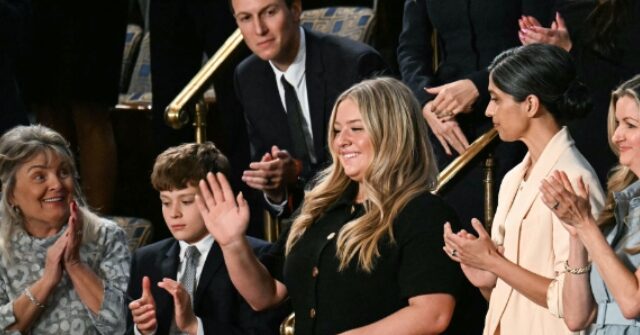Payton McNabb’s Expulsion from Sorority Sparks Outrage and Debate
The story of Payton McNabb, a young woman who faced serious injuries during high school due to a transgender athlete, has taken a troubling turn. McNabb recently found herself at the center of controversy after being expelled from her college sorority, Delta Zeta, for speaking out about an incident involving a male using the women’s bathroom at Western Carolina University. This incident has sparked widespread debate, with many questioning the sorority’s decision and the broader implications for women’s rights and safety.
The Incident and Its Aftermath
According to McNabb, the incident began when she encountered a transgender individual using the women’s bathroom on campus. Feeling uncomfortable and unsafe, she documented the situation by taking a video and later shared it on her social media platforms. Her actions, however, were met with backlash from her sorority, Delta Zeta. The organization accused her of violating its “Moral-Prejudicial Conduct” policies, claiming that her video was “reasonably perceived as being dehumanizing, intimidating, hostile, threatening, or otherwise likely to evoke fear of physical harm or emotional distress.” As a result, McNabb was expelled from the sorority.
McNabb has expressed her disappointment and frustration over the decision, stating that she was simply standing up for what she believes is right. “Instead of standing by me, they chose to appease a grown man living in a false reality,” she wrote in a powerful message to her followers. “The organization meant to empower women turned its back on one to protect a lie.” McNabb emphasized that her intention was not to bully or harass but to raise awareness about an issue she believes compromises women’s safety and privacy.
Support from Women’s Rights Activists
McNabb’s expulsion has not gone unnoticed, and she has received support from fellow women’s rights advocates. Among them is Riley Gaines, a friend and prominent activist who has been vocal about the need to protect women’s spaces. Gaines criticized Delta Zeta for its decision, calling the sorority a “disgrace” for prioritizing the comfort of a male individual over the safety and well-being of its female members. “Payton McNabb, the volleyball player who was permanently injured by a male player, was kicked out of her sorority after filming a man in her restroom because she felt unsafe,” Gaines wrote. “Is this what ‘sisterhood’ stands for, @DeltaZetaNatl? You’re a disgrace to women.”
Gaines’s comments highlight the broader debate surrounding gender identity and women’s rights, particularly in spaces traditionally designated for women. Many argue that allowing biological males to access women’s bathrooms and locker rooms creates an unsafe environment for women, while others assert that such policies are necessary to protect the rights of transgender individuals. McNabb’s case has become a flashpoint in this debate, with many questioning whether organizations like Delta Zeta are prioritizing inclusivity over the safety and concerns of their female members.
Larger Implications and the Broader Debate
The controversy surrounding McNabb’s expulsion raises important questions about the balance between inclusivity and the rights of women to feel safe in their own spaces. McNabb’s experience is not an isolated incident; it reflects a growing tension in society as institutions grapple with how to accommodate transgender individuals while addressing the concerns of those who believe that certain spaces should remain exclusive to biological females.
For many, the issue is not about discrimination but about protecting the integrity of women’s sports, bathrooms, and other spaces that are meant to provide a safe and private environment for females. McNabb’s own history adds another layer to the debate; she suffered permanent injuries during a high school volleyball game when a transgender athlete, who was competing on the girls’ team, collided with her. This experience has likely shaped her perspective on the need to maintain boundaries in women’s sports and spaces.
The Role of Organizations in Addressing the Issue
Organizations like Delta Zeta, which are traditionally focused on fostering sisterhood and empowering women, are increasingly finding themselves at the center of these debates. The decision to expel McNabb has been seen by many as a betrayal of the organization’s core values, with some arguing that it sends a message that women’s concerns are secondary to political correctness. McNabb’s expulsion has also raised questions about the role of such organizations in supporting their members and addressing sensitive issues.
For McNabb and her supporters, the incident is a clear example of how women who speak out about their concerns are often silenced or punished. “STANDING UP FOR WOMEN SHOULD NOT BE CONTROVERSIAL !!!!!” McNabb wrote in response to her expulsion. Her words resonate with many who believe that advocating for women’s rights and safety should not be met with backlash but with support and understanding.
Conclusion: A Call for Dialogue and Understanding
The controversy surrounding Payton McNabb’s expulsion from Delta Zeta is a complex issue that touches on themes of inclusivity, women’s rights, and the role of organizations in addressing these challenges. While the incident has sparked outrage, it also serves as an opportunity for dialogue and reflection. McNabb’s story highlights the need for a balanced approach that respects the rights and dignity of all individuals while addressing the legitimate concerns of women who feel their spaces and safety are at risk.
As society continues to navigate these challenging issues, it is important to create spaces for open and respectful dialogue. By listening to the perspectives of all parties involved, including women like McNabb who feel their voices are being ignored, we can work towards solutions that uphold the values of inclusivity, safety, and respect for everyone.


